Fitter Confident You’s Matt Boyles wants to help queer men reach their personal best
The Founder and CEO of Fitter Confident You explains his experiences in the fitness industry and what led him to create a workout programme specially for queer men
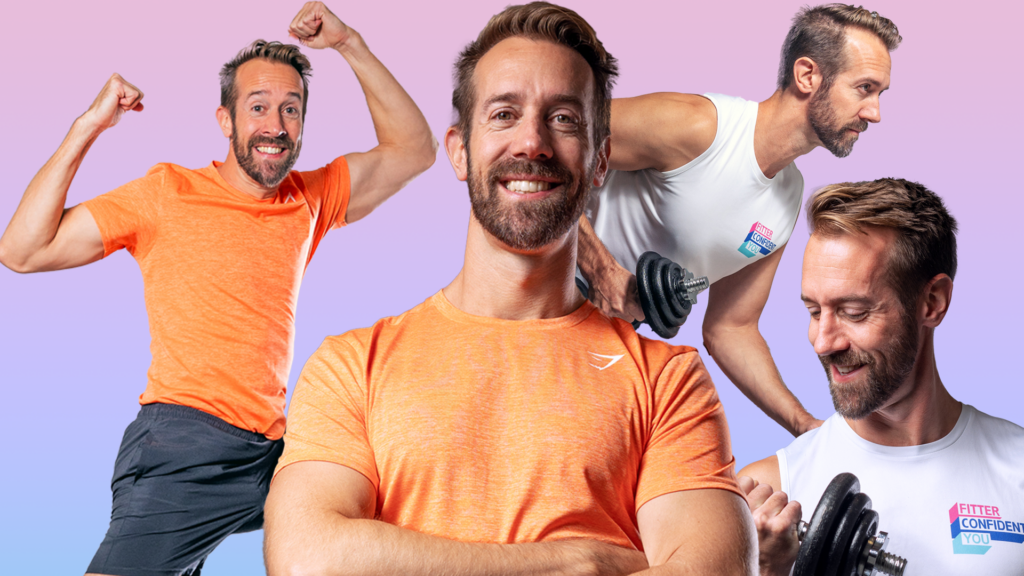
As a gay man with a passion for fitness, Matt Boyles, the founder and CEO of Fitter Confident You (FCY), identified a need among queer men for a personal trainer who understood them and had lived similar experiences.
He was also a step ahead of everyone else when he decided to work as a personal trainer in the virtual sphere. Cue the pandemic, when everyone was suddenly forced to do everything at home, including keeping fit. Here, he discusses the origins of FCY, reveals why he decided to write a fitness book for LGBTQ+ men and relives his time as a London DJ.
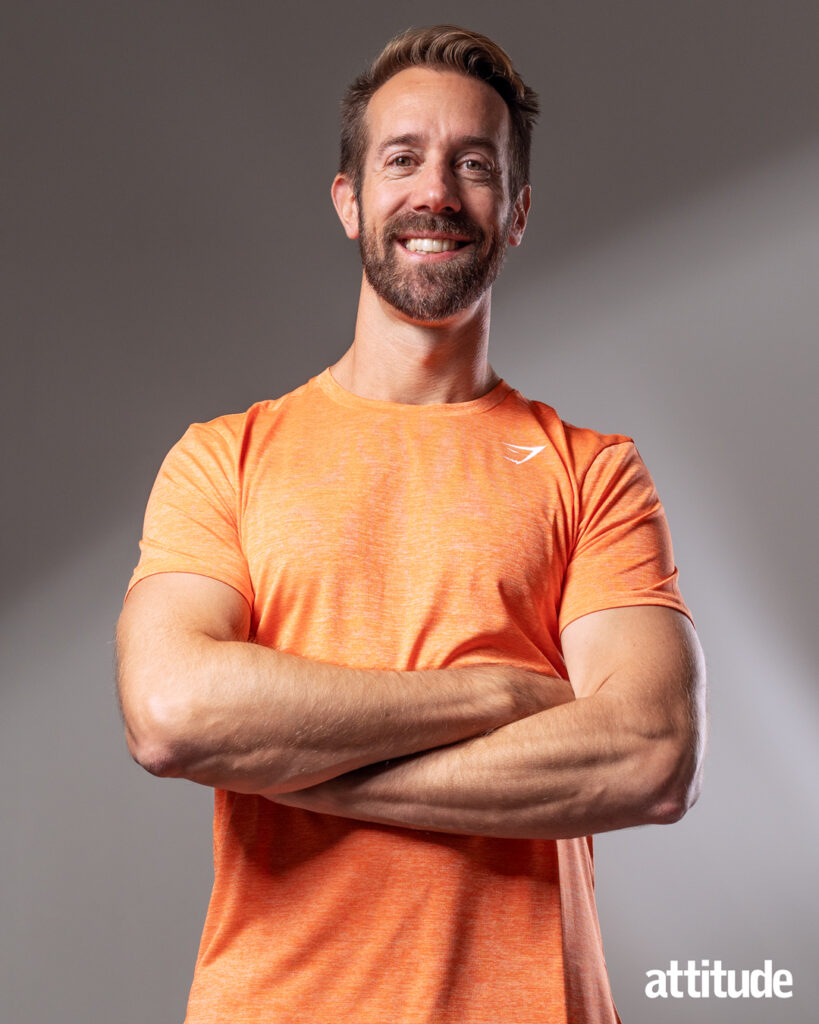
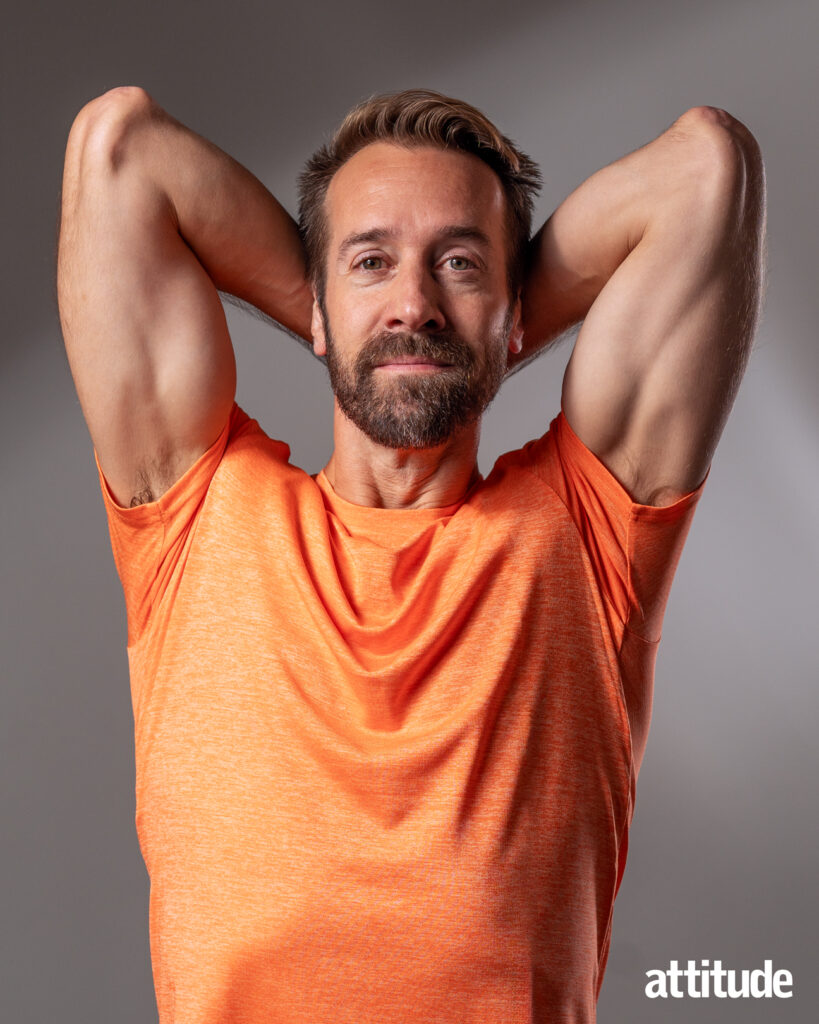
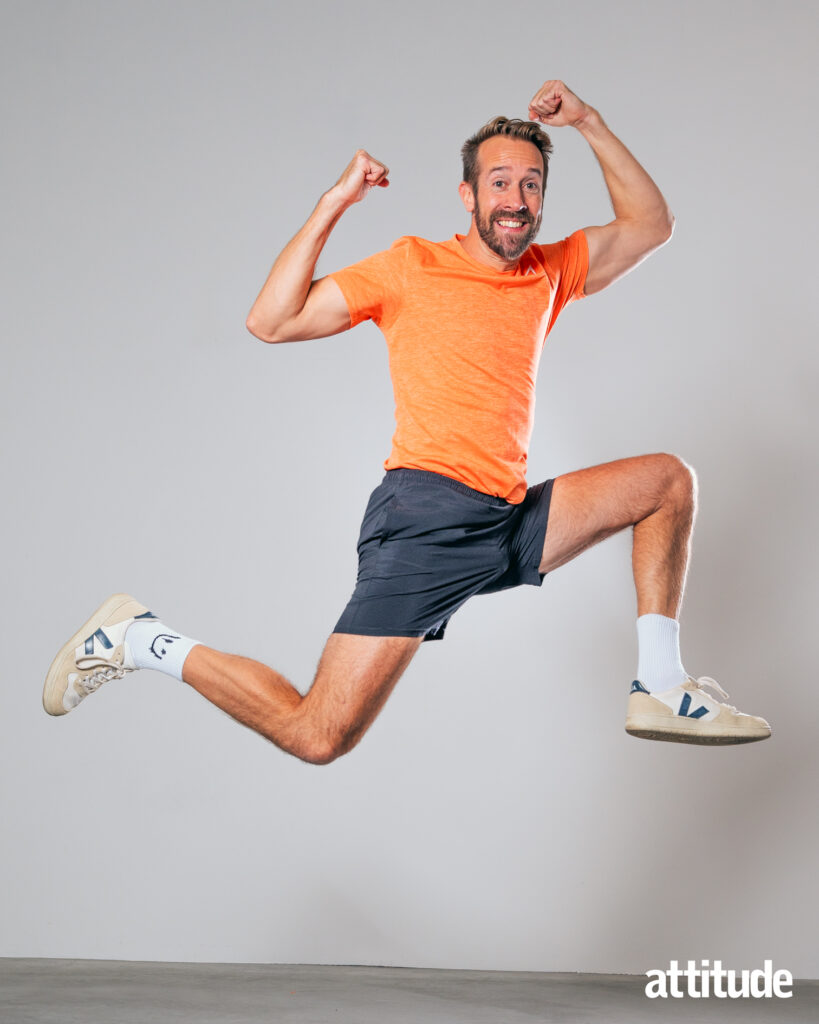
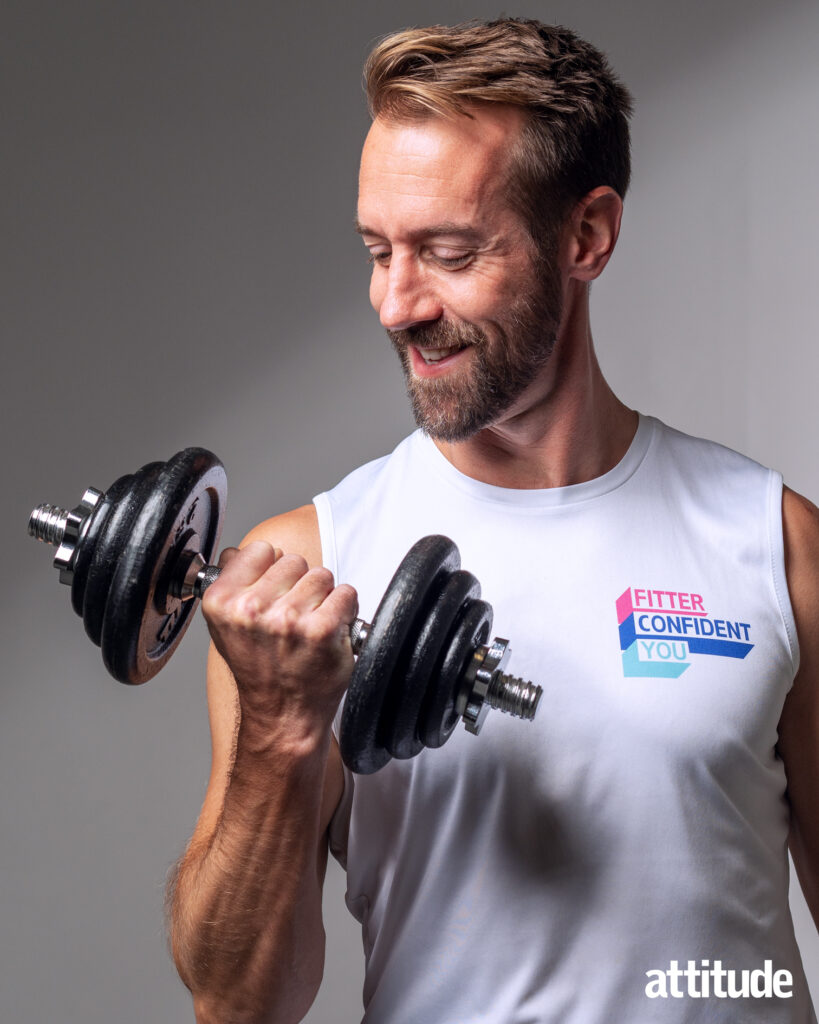
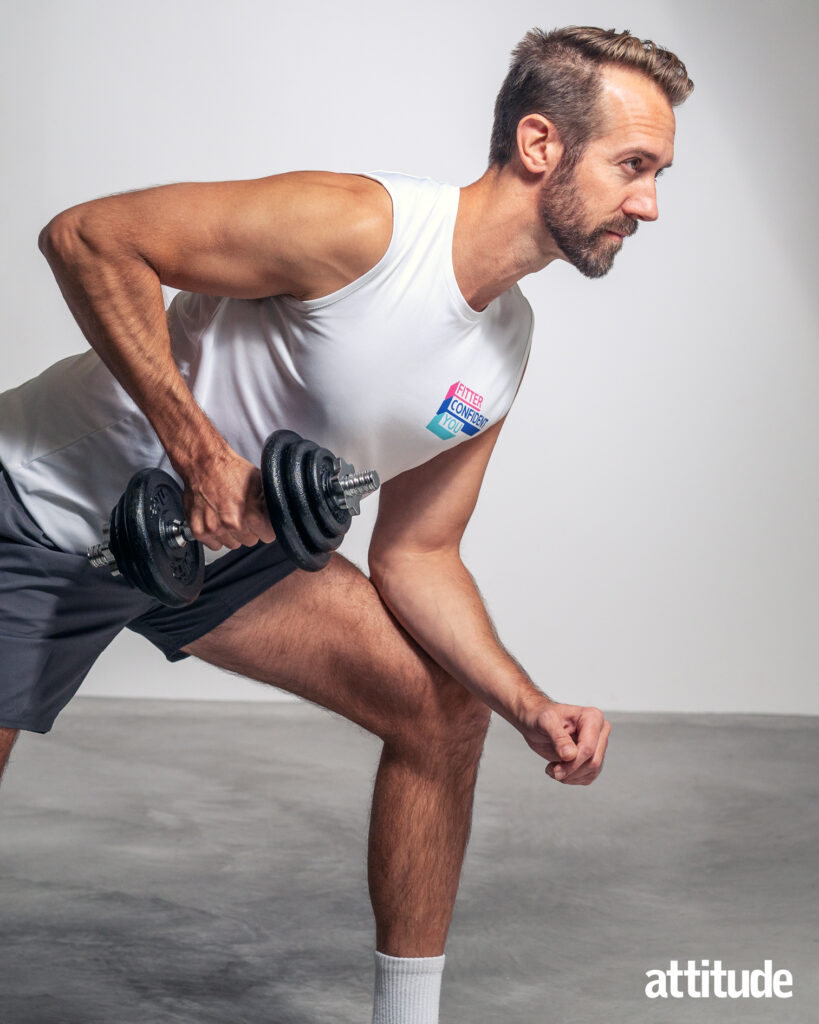
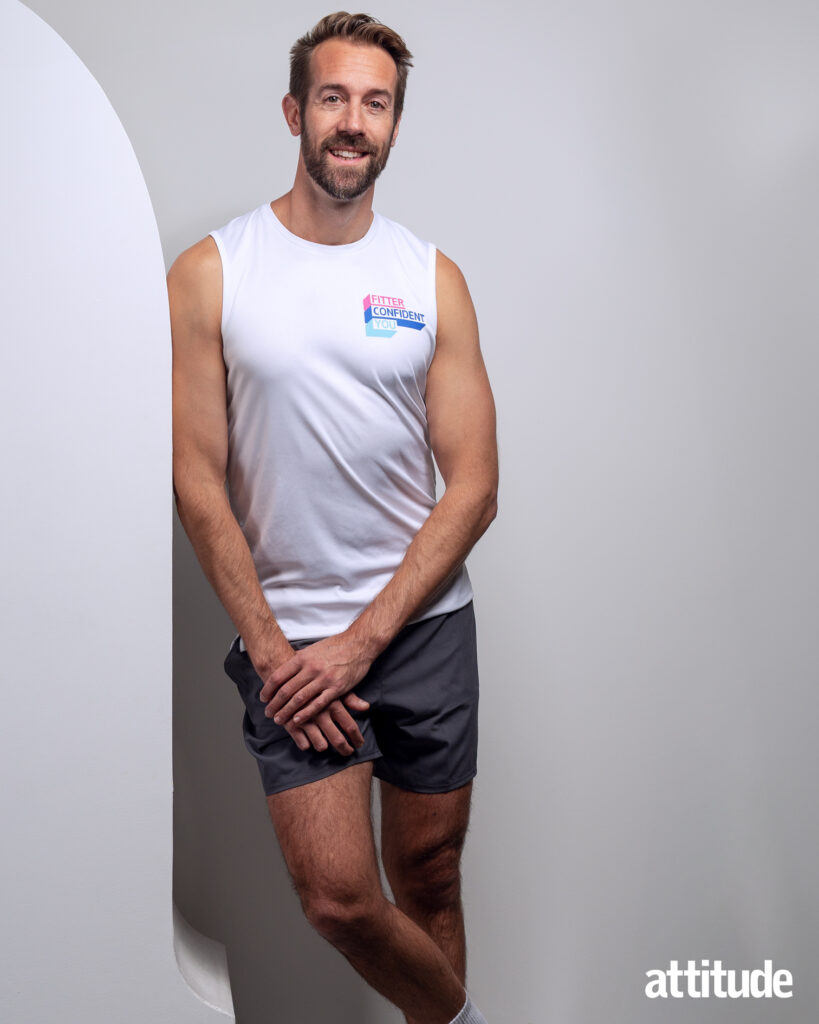
What is FCY, and where did the idea come from?
It’s a way for me to put my arms around our community and say “Whatever you want to do with your fitness, it’s OK — there isn’t a right or wrong way to do anything.”
I got into fitness in my late twenties. When I found my way forward, it totally changed my life: I found my voice, my confidence, my boundaries. And I set up a fitness company. For the first five or so years, I was a more traditional trainer. I trained people face to face, and my approach was if you can work with anyone, you can work with everyone — which is nonsense because people fall through the cracks.
About six years ago, I saw the rise of some online trainers and wondered if I could create something similar. My own personal fitness journey had coalesced into something wonderful that made me feel good every day, and it was like a lightning bolt: of course — there are other gay, bi, trans, and queer guys and non-binary people who like the idea of fitness but don’t know where to start. That was the birth of FCY — wanting to do something for our community to make it as easy as possible for them to feel as amazing as I was.
How do you work as a personal trainer?
There are a lot of different ways to work with me, whatever your fitness level, wherever you are in the world, whatever your budget. The first thing I did was start a Facebook group, which still exists and there are about 7,000 people in it. My whole approach is making fitness fun, inclusive and accessible. That’s the foundation of that community. There’s online personal training, which can either be one to one with me or one of my brilliant coaches, or group support.
But at its core, the physical elements are workouts that can be done at home or at a gym. I’ve got a brilliant app with videos and sensible nutrition coaching which shows you what to do. That’s the other key: I never want anything to feel too much. Sensible and sustainable are my key words in terms of how I approach training. It’s about allowing people that safe space to do it on their terms.
What is the key to your method as a personal trainer?
For every PT, it comes down to their personality and what they can tap into. For example, I lean into my love of pop music and puns. I always talk about finding your tribe, finding people who get you. They lift me up just as much as hopefully I’m lifting them up at the same time. If you can find someone who gets you, it just makes it so much easier.
Why did you start working virtually before the pandemic?
I did five winters freezing on Clapham Common. It honed my skills. But you can only help as many people as you can see in the day. Even on a super busy day, I saw just eight people, which is also very physically tiring. But I only helped those eight people, versus when I started building an online version, it allowed me to take a step back and go, ‘There’s so much more that I could be doing.’ That was exciting.
Did you see an increase in clients during the pandemic?
It was definitely busier. I came up with the idea of doing a free live workout every day early on and then ended up doing 400 consecutively, which is amazing. That built an amazing community as well, which I’m so grateful for because it gave me extra focus. Being able to use something that I could give out for free and to help people just not feel so alone was fantastic.
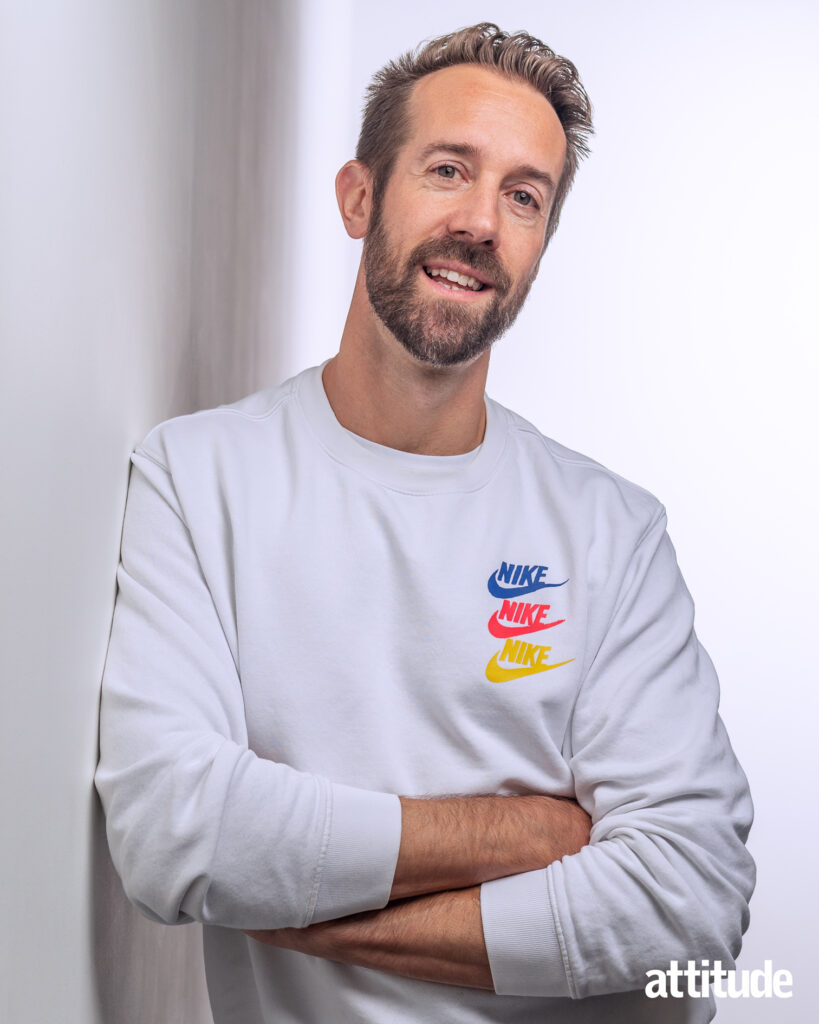
Why the focus on queer men?
Because that’s who I am. And I had seen so many people struggling, who didn’t know where to start. The only reason I don’t work as explicitly with the ‘L’ is because I’m not a woman; I haven’t lived that experience. And I know there are amazing lesbian trainers out there, who I believe lesbians would have a better experience with. That isn’t to say I turn people away, I just don’t have that specialist knowledge.
What was it that made you want to do that?
Because there are some amazing straight trainers out there who are wonderful allies and do get it. But I’ve come across guys who just don’t and can’t access a part of their brain to help them understand it.
Are the needs of queer men different from straight men?
Yes and no. A lot of straight men also don’t feel comfortable in the gym. They feel like they don’t belong there. We feel that too. But then we have the extra layer of we’re queer. So queer men do need extra support — not all — but lots do on the emotional and mental side of feeling as entitled to it as anyone else. They pay the same as anyone else to be in the gym; you can take up just as much space. But that’s a bigger queer thing. Often, we feel we have to minimise ourselves and take up less space. It’s about helping people see that they’re every bit as valid.
How does it feel to have created such a supportive online group?
I’m endlessly proud that I started it, but also that people have gone on this journey with me and trusted that it was a good thing to do. Being able to help and reach anyone who wants it is such a gift. I use it as an opportunity to show that the LGBTQ+ community doesn’t have to see each other as, like, Mean Girls. It’s about how we support each other, build amazing bonds, motivating each other, and showing people what’s possible. I also don’t want it to veer into toxic positivity, where everything’s great. That isn’t life. I’m happy people are comfortable sharing when things aren’t always going right. It grounds the group. What I love is that the group will rally around and suggest how people can feel better or get started again.
What do you do for your own fitness?
I go to a CrossFit gym three or four times a week, but I don’t do CrossFit. They have different levels of classes, like high intensity and strength classes. I love it because I go and I don’t have to think. I’m told what to do for an hour, and all my friends are there because I’ve been a member for four years. It’s the most amazing community — really inclusive, really LGBTQ+ friendly. Occasionally, I’ll go for a run. Exercise is just something that I do because I love it. It’s woven into the fabric of who I am. I work out regularly because I like it, because it makes me feel good, because it helps me sleep better, and I know it’ll help me stay fit.
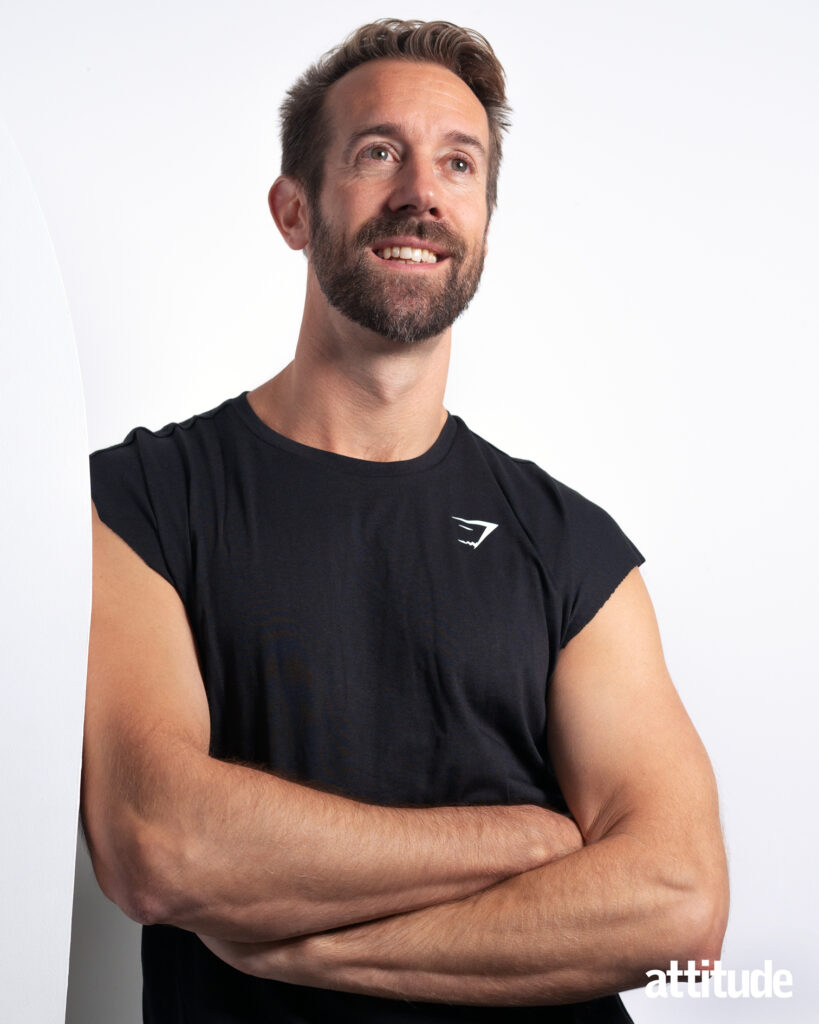
What do you do for your mental health?
I love meditation. I start the day with about 10 minutes of sitting quietly. Sometimes I’ll use a guided meditation, sometimes I’ll just sit quietly and count my breath. Genuinely, the fitness that I do ticks 90 per cent of my mental well-being. I’ve also got lovely friends, and I’m really invested in my own personal development.
Do you have bad days and, if so, how do you deal with them?
I was definitely guilty a few years back of pretending that I didn’t have bad days — that toxic positivity. One time I hurt my back, and I didn’t tell anyone because I had this stupid thing that I had to be this paragon of health. But the more I’ve been honest with clients — with everyone — the more people have trusted me and gone with me on this journey. Even if I got a cold, I would try and hide that before. I will have low-energy days, or if I’ve had a few days of drinking, I know I will have low energy. Remembering that and not beating myself up about it has really helped me.
What’s next for you?
I’ve just started doing retreats, which is very exciting. I’ve run one in Italy and one in the UK, which were amazing. The next one is in Italy in May, which is even more mind-blowing. I love bringing people together and facilitating friendships and helping people build bonds. These retreats are an opportunity for a group of like-minded guys to let their shoulders drop and go, ‘What do I really want? What would make me happy? Do I need to change things?’ There have been some profoundly life-changing moments already from them. Then we do some fitness, we go for lovely walks or experiences, have great food, and do yoga. But the beauty and the power of retreats is stepping out of real life and allowing yourself to think differently.
What was it like to create a book?
A bit daunting at first, but I know what works for me. I set a deadline of when I had to hand it in. I started in mid-January 2022, and I handed it in at the end of May 2022. I’m so freaking proud of it. I wrote it because it didn’t feel like there was a modern handbook for LGBTQ+ people about wellbeing and fitness.
I read on your website that you used to DJ. When did you do that?
I did, I love dance music, and electronic music. I started in 2007 or 2008. A friend of mine was really into DJing. He said, “Shall we try and get some gigs?” And he taught me, and we started getting gigs. At first, you’d have to say you’d sell a certain number of tickets. We did somewhere in Clapham, and then the next time was at Ministry of Sound. Then Pacha and Egg. I still don’t know how we did it. We played all over London repeatedly, and it was really fun. Eventually, it ran its course. I wasn’t being paid for it — it was just fun.
Did you have a DJ name?
New Sense. And our collective name was Disposable Thumbs.
On your site you describe yourself as a “Jurassic Park-watching, Dragons’ Den-surviving, karaoke-shouting, cottage cheese-obsessing fitness maven”. If you had to pick one of those things to keep, which would it be?
I’ll say karaoke because it’s with friends, it’s music, and it’s an experience.
The Fitter Confident Youniverse: An LGBTQ+ Guide to Wellbeing on Our Terms is out now
This feature first appeared in Attitude issue 356. You can subscribe and order Attitude here.
